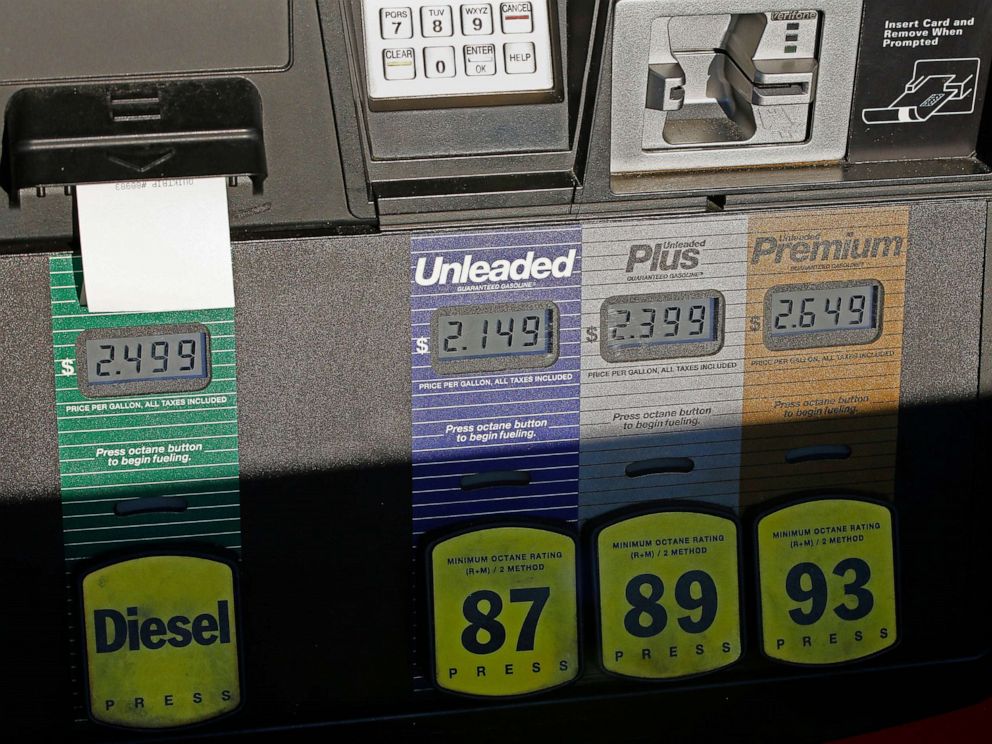Gas prices this Labor Day weekend will be 30 cents a gallon lower than it was a year ago, study says
This is the lowest price on the holiday weekend since Labor Day in 2016
As Labor Day approaches, holiday travelers are expected to see fuel prices drop this year.
Gasoline prices are estimated to be $2.55 per gallon, which is 30 cents lower than last year's Labor Day weekend, according to a study from GasBuddy.com. This is the lowest price since Labor Day in 2016.
Many including Erika Watson, 28, who is traveling from Maryland to Houston this holiday, are excited about the dropping gas prices.
"As of right now, the gas prices have been more than $.50 cheaper, sometimes $.75 which has allowed me to not feel as guilty when I splurge on dinner or buy something new," Watson told ABC News.
The demand for gasoline is estimated to decline even more in 10,000 gas stations around certain areas like Oklahoma, Texas, Louisiana, South Carolina, Alabama, Mississippi, Missouri and a handful in the Great Lakes as the weather transitions into winter.
"This Labor Day weekend, the majority of motorists will pay the cheapest gas prices for the holiday in three years," an AAA spokesperson Jeanette Casselano told ABC News. "If they don’t have a road trip planned already, Americans are likely to be enticed by the lower pump prices to hit the road and enjoy the last unofficial weekend of summer."

In addition to predicting gas prices this weekend, GasBuddy also looked at how many hours of work per year it takes for the average motorist to pay for his annual gasoline expenses. The study found that residents of Nevada had to work the most hours, approximately 108 per year, to pay for yearly gas costs, followed by Montana and Idaho.
Motorists who lived on the West Coast, Rockies and Southeastern U.S. all generally required more labor hours than motorists in the Northeast, with those in Massachusetts working just 67 hours per year to pay their yearly gasoline bill, GasBuddy determined.
The difference between the work hours per year in Nevada and Massachusetts amounted to nearly an entire work week every year.
Patrick DeHaan, the head of petroleum analysis at GasBuddy, said that while it feels nice to see the gas prices go down, he wanted to see the difference of how much labor motorists were putting in different states.
"This study was an interesting reminder that how much time one spends to pay for gasoline varies drastically and that motorists can lessen the burden by locating low priced stations," DeHaan said.




